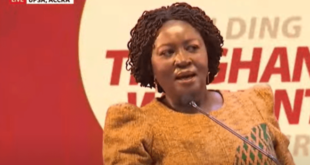A further EUR 10 million has been pledged by the European Union (EU) to Ghana in order to assist “the most vulnerable populations” who are being affected by the unlawful and unprovoked invasion of Ukraine by Russia.
The Deputy Head of the European Union Mission to Ghana, Mr. Pieter Smidt Van Gelder, announced the new Special Measure in Accra and stated: “These new funds will support families to grow crops, generate income, and improve food availability on local markets”.

By encouraging sustainable food production and fortifying integration into local and national food value chains, the EU’s assistance will also help Ghanaian farmers become more crisis-resistant.
According to a joint statement from the two parties, the funding will help the long-term growth of several agribusiness value chains, including those for shea, soybeans, beekeepers, and vegetables.
“This will complement efforts by the Ghanaian government to mitigate further increases in poverty, hunger, and malnutrition in vulnerable areas affected by high prices of food, fertiliser, and fuel”.
Dr. Owusu Afriyie Akoto, Ghana’s Minister of Food and Agriculture, said: “With this Special Measure, we will strengthen our support to address our demands for agricultural security while fostering resilient and sustainable food systems.”

Abena Osei Asare, Ghana’s deputy finance minister, also hinted: “We as a country have been faced with a number of challenges in recent times. The COVID-19 pandemic and lately Russia – Ukraine war have particularly had worrying effects on Ghana’s economy. The conflict has resulted in a rapid increase in the prices of food, fuel and fertilizer, with its attendant consequences on the country’s foreign exchange reserves used to purchase commodities imported for public consumption as well as inputs for industries. Food inflation continues to contribute highly to overall inflation. Ghana’s inflation for September 2022 stood at 37.2% with food inflation contributing largely at 37.8%”.
With the following results, the support will be concentrated in Ghana’s northern region: More inclusive, economically viable food systems environmental sustainability of food systems strengthened improvements in social sustainability and gender responsiveness of food systems, including food and nutrition security, and institutional sustainability of food systems and improved governance.
Source: Ghanatodayonline.com
 Ghanatodayonline.com News, Politics, Health, Education & More
Ghanatodayonline.com News, Politics, Health, Education & More



